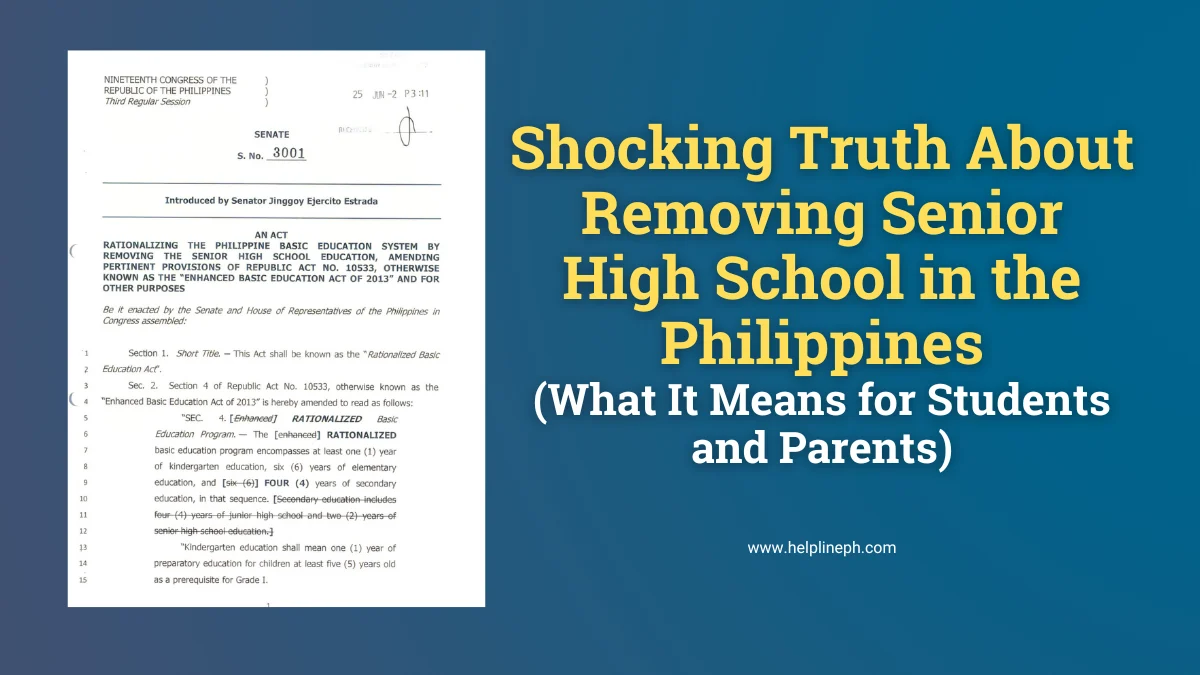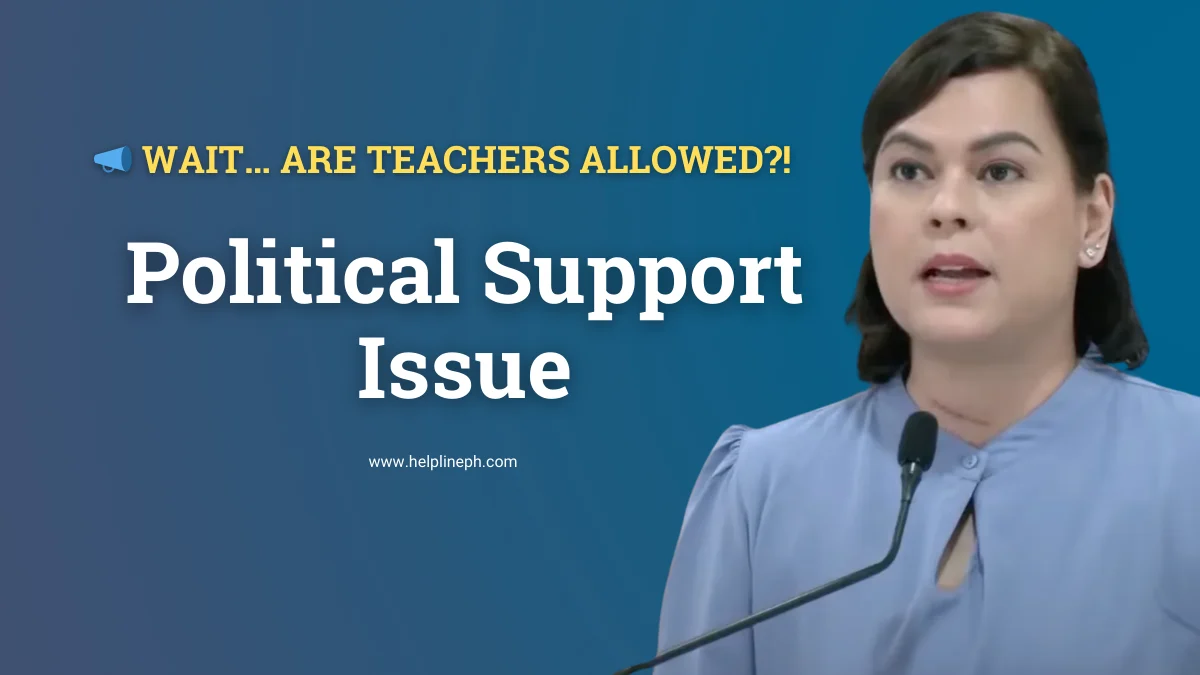Removing Senior High School: Why It’s a Big Deal for Every Filipino Student
Removing senior high school from the Philippine education system is now being proposed under the Senate Bill No. 3001. If passed, this new law will change how basic education works in the country—again. But what does this really mean for students, parents, and teachers?
I’m going to break it down in simple terms, so you can fully understand what’s happening and how it affects you.
What Is Senate Bill No. 3001?
This bill, introduced by Senator Jinggoy Ejercito Estrada, aims to:
- Remove the senior high school program from the K to 12 system.
- Revise Republic Act No. 10533 (the Enhanced Basic Education Act of 2013).
- Rename the K to 12 program as the Rationalized Basic Education Program.
That’s a huge change. Basically, students would go back to having only 10 years of basic education—kindergarten, six years of elementary, and four years of high school.
Why Is Senior High School Being Removed?
Here’s the reason behind this plan:
1. It Didn’t Meet Expectations
Senior high school was supposed to prepare students for college or jobs. But many graduates still couldn’t find work. Employers often wanted college degrees, not just senior high diplomas.
2. It’s Too Expensive for Families
Two extra years of school means more money for tuition, uniforms, projects, and transport. For low-income families, this became a big burden.
3. Not Enough Jobs for Graduates
Many graduates expected to be job-ready after Grade 12. But the real world didn’t work that way. Most companies still prefer college graduates, so the added years didn’t help much.
What Will Change in the Education System?
If this bill becomes law, here’s what students can expect:
| Current K to 12 | New Rationalized System |
|---|---|
| Kindergarten | Kindergarten |
| Grades 1-6 | Grades 1-6 |
| Grades 7-10 (Junior HS) | Grades 7-10 |
| Grades 11-12 (Senior HS) | ❌ Removed |
That’s four years less than the current system.
What Will Happen to the Curriculum?
The law proposes a revised curriculum that focuses on:
- Basic literacy and numeracy
- Job-readiness at Grade 10 level
- Aligning lessons with college and industry needs
- More practical and life skills training
Teachers and schools will also undergo retraining to fit the new model.
Will College Go Back to 4 Years?
No, college will still be based on your chosen course. But without senior high school, students will need better preparation during Grades 7 to 10. The goal is to avoid remedial classes in college.
The Good: Why Some People Support the Bill
- Saves Money: No need for two extra years.
- Faster Path to Work or College: Students finish earlier.
- Less Dropout Risk: Shorter schooling may encourage more kids to finish.
The Bad: What Critics Are Saying
- Less Time to Learn: Students may not be fully prepared for college.
- Possible Job Skill Gaps: Grade 10 grads might not be ready for some jobs.
- Confusion During Transition: Teachers and schools may struggle to adjust quickly.
How Will the Government Handle the Transition?
The DepEd, CHED, and TESDA will:
- Plan the transition carefully
- Offer retraining for teachers
- Adjust school facilities
- Monitor the program closely for problems
There’s also a clause that allows Congress to review the program five years after it starts, so improvements can be made if needed.
What Happens to Teachers?
Teachers from senior high may be reassigned to other grade levels or given roles in basic education or training programs. The law asks DepEd and other agencies to make sure no one loses their job unfairly.
Real Talk: What This Means for You
I remember my cousin graduating from Grade 12 and struggling to find a job. Even with the added years, employers still told her she needed college. So she had to go back to school and spend more money.
If this new law really cuts down unnecessary years and focuses on skills that actually matter, maybe more Filipino students can succeed without going broke.
But it has to be done right.
What You Can Do
Are you a student? Talk to your school about what changes might come.
Are you a parent? Watch for announcements from DepEd and your local government.
Are you a teacher? Prepare for training and read updates from DepEd regularly.
FAQs: Removing Senior High School in the Philippines
Is senior high school officially removed now?
No. It’s just a proposal for now. It has to pass through Congress and be signed into law.
What happens to students already in senior high?
They will likely continue under the old system until the law officially changes and the transition plan is ready.
Will this affect college entrance?
Colleges may adjust their admission rules, but students will still need to meet course requirements.
Will it affect job opportunities?
It depends. The new plan aims to improve job readiness by Grade 10, but some jobs may still require college.
Removing senior high school could be a game-changer for Philippine education. But it’s not just about cutting two years—it’s about making sure the years students spend in school actually matter.
What do you think? Would you support this change? Let’s talk about it.






